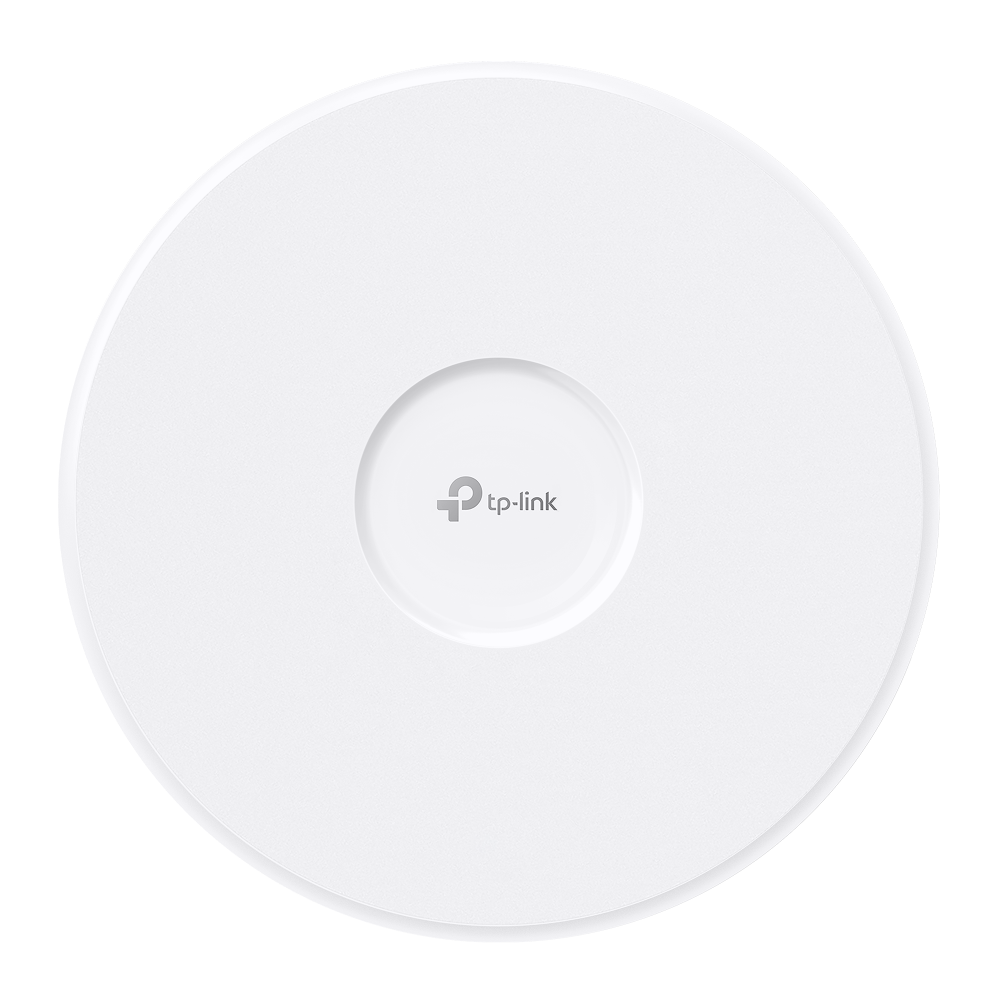-
$
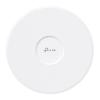
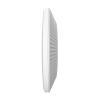
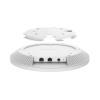
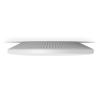
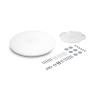
The TP-Link EAP783 is an access point designed for use with the Omada system. It supports Wi-Fi 7 and operates with IEEE 802.11 b/g/n/ax/be protocols in the 2.4 GHz band, IEEE 802.11 a/n/ac/ax/be in the 5 GHz band, and IEEE 802.11 ax/be in the 6 GHz band. The maximum theoretical throughput is 1376 Mb/s in the 2.4 GHz band, 5760 Mb/s in the 5 GHz band, and 11520 Mb/s in the 6 GHz band. It offers significantly higher connection speeds compared to Wi-Fi 6 / Wi-Fi 6E due to the new 802.11be protocol and 4096QAM modulation. Wi-Fi 7 also introduces several other useful features, with Multi-Link Operation (MLO) being one of the most important. The device is equipped with 2 10G Ethernet ports, one of which includes a PoE++ (802.3bt) power input. Optionally, power can be supplied via a DC jack. The enclosure is designed for wall or ceiling mounting, with the default installation location being the ceiling.
The device is designed to work within the Omada ecosystem. This system allows for centralized management of multiple access points to create a seamless, extensive wireless network. As you move between different devices, you will be automatically switched without losing Wi-Fi connectivity. Omada offers many advanced features for network configuration and maintenance. It is tailored for professional applications in offices, restaurants, schools, universities, and retail environments.
Note: The package does not include a power supply!
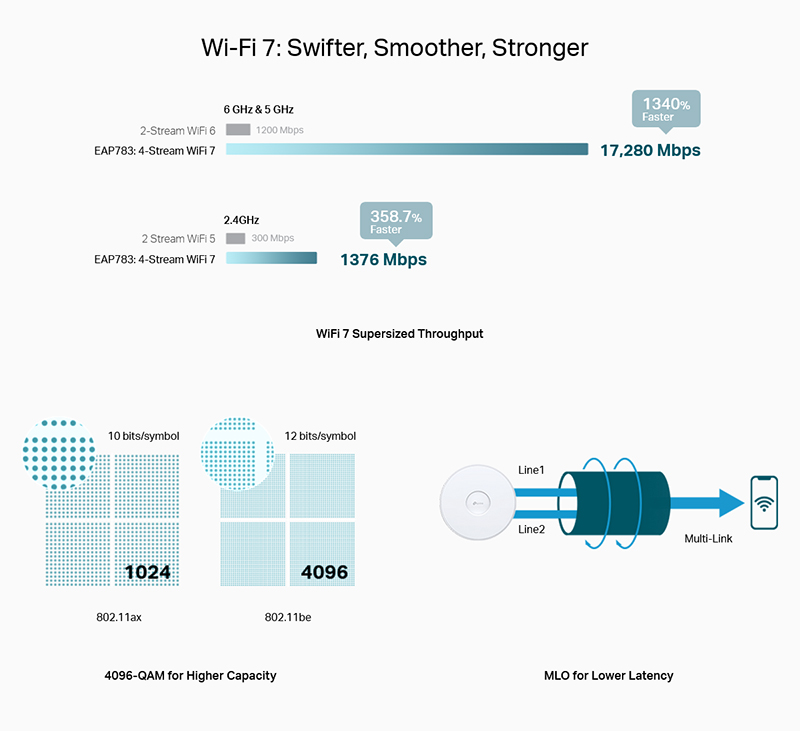
Wi-Fi 7 BE19000
The access point is designed to transmit Wi-Fi 7 wireless networks, utilizing IEEE 802.11 b/g/n/ax/be protocols in the 2.4 GHz band, IEEE 802.11 a/n/ac/ax/be in the 5 GHz band, and IEEE 802.11 ax/be in the 6 GHz band. The maximum theoretical throughput is 1376 Mb/s in the 2.4 GHz band, 5670 Mb/s in the 5 GHz band, and 11520 Mb/s in the 6 GHz band. Such high speeds are achievable thanks to the 802.11be protocol, which introduces 4096QAM modulation, whereas older protocols (802.11ax) used a maximum of 1024QAM modulation.
Wi-Fi 7 introduces additional features that enhance wireless connection quality. One of the most significant is Multi-Link Operation (MLO), which allows data to be transmitted across multiple bands simultaneously (e.g., in both 2.4 GHz and 5 GHz). In older standards, a device could connect to an access point using only one band at a time.
Omada system
The device is designed to operate within the Omada ecosystem. This system enables centralized management of multiple access points to create a unified, extensive wireless network. As you move between different devices, you will be seamlessly switched without losing Wi-Fi connectivity. Omada offers many advanced features for network configuration and maintenance. It is tailored for professional applications in offices, restaurants, schools, universities, and retail environments.
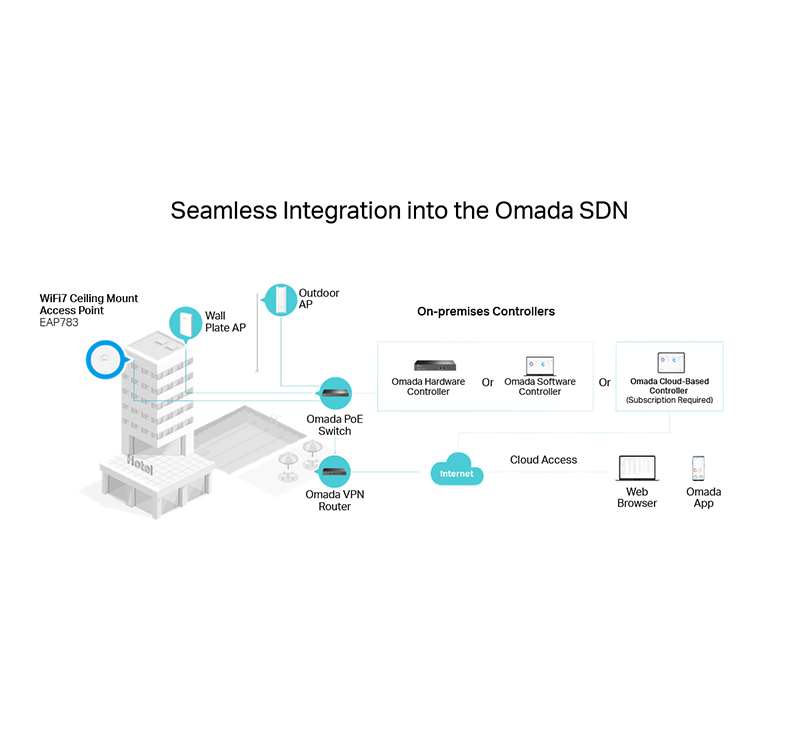
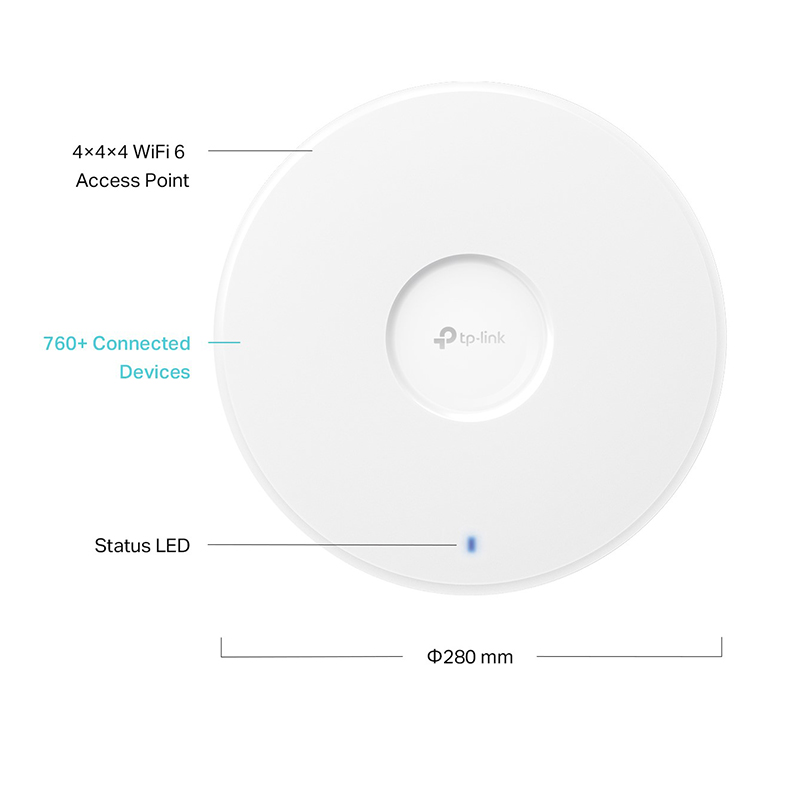
Up to 760 clients simultaneously
Thanks to its three radios, the device supports a very high maximum number of client devices—up to 760. The EAP783 is well-suited for environments with many simultaneous users, such as conference rooms, clubs, or exhibition halls.
2x 10G Ethernet, PoE
The access point features 2x 10G Ethernet ports, allowing it to fully utilize the capabilities of Wi-Fi 7. For power, you can use PoE++ (802.3bt) or a DC jack. When using the DC jack, the input voltage is 12V DC, with a maximum power consumption of 39W. The power supply is not included in the package; it must be purchased separately or you can use a PoE switch.
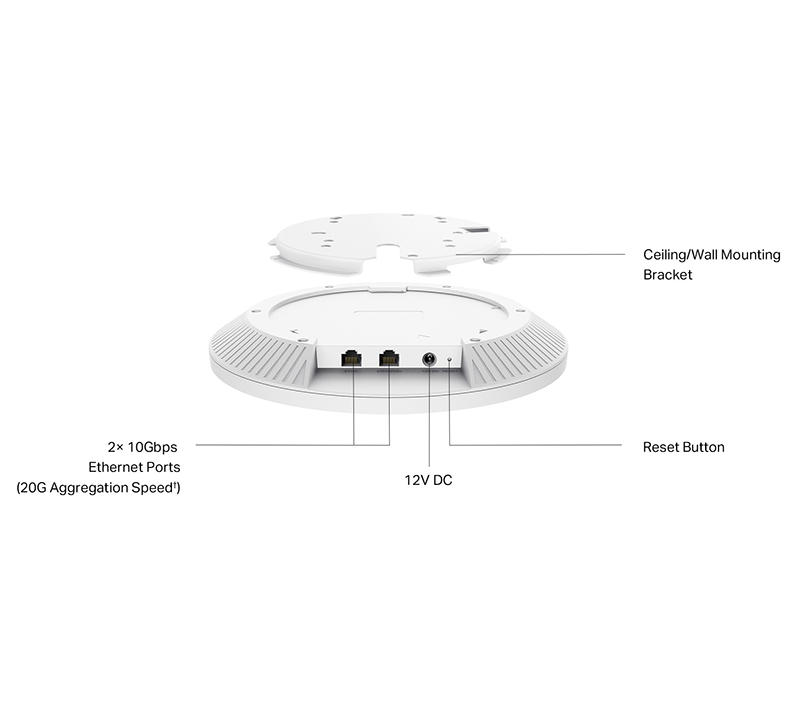
Specifications
| TP-Link EAP783 | |
| General | |
|---|---|
| Weight | 1384,6 g |
| Hardware features | |
| Interface | 2× 10G Ethernet Ports (20G Aggregation Speed) |
| Button | Reset |
| Power Supply |
802.3bt PoE++ Note?Power adapter is not included. |
| Power Consumption | 39 W |
| Dimensions ( W x D x H ) | 280 x 280 x 46,5 mm (11,0 x 11,0 x 1,8 cali) |
| Antenna Type | Internal Omni 2,4 GHz: 4× 4 dBi 5 GHz: 4× 5,5 dBi 6 GHz: 4× 5 dBi |
| Bluetooth | V5.2 |
| Mounting | Ceiling / Wall Mounting (Kits Included) |
| Wireless features | |
| Coverage | 200? (2150 ft²) |
| Concurrent Clients | 760+ |
| Wireless Standards |
2,4 GHz: IEEE 802.11 b/g/n/ax/be 5 GHz: IEEE 802.11 a/n/ac/ax/be 6 GHz: IEEE 802.11 ax/be |
| Frequency |
2,4 GHz 5 GHz 6 GHz |
| Signal Rate |
2,4 GHz: ~ 1376 Mb/s 5 GHz: ~ 5760 Mb/s 6 GHz: ~ 11520 Mb/s |
| Wireless Functions | MLO 4K-QAM MU-MIMO (4x4 MU-MIMO DL/UL) HE320 (320 MHz Bandwidth) Mesh Seamless Roaming(802.11k/v/r) Automatic Channel Selection and Power Adjustment BSS Coloring UL/DL OFDMA Load Balance Band Steering Beamforming Airtime Fairness Multiple SSIDS Wireless Statistics Wireless Schedule Reboot Schedule RADIUS Accounting MAC Authentication Static IP/Dynamic IP |
| Wireless Security | PPSK VLAN Access Control Rogue AP Detection Captive Portal Authentication Maximum number of MAC Filter: 4,000 Wireless Isolation between Clients WPA-Personal/Enterprise, WPA2-Personal/Enterprise, WPA3-Personal/Enterprise, OWE |
| Management | |
| Omada App | Yes |
| Restore & Backup | Yes |
| Firmware update via Web | Yes |
| NTP | Yes |
| Centralized Management | Omada Hardware Controller (OC300) Omada Hardware Controller (OC200) Omada Software Controller Omada Cloud-Based Controller |
| Cloud Access | Yes. Require the use of OC300, OC200, the Omada Software Controller, or Omada Cloud-Based Controller. |
| Email Alerts | Yes |
| LED ON/OFF Control | Yes |
| Management MAC Access Control | Yes |
| SNMP | v1, v2c, v3 |
| SSH | Yes |
| Web-based Management | Yes |
| Others | |
| Package Contents | EAP783 Installation Guide Ceiling/Wall Mounting Kits |
| Operating Temperature | 0?–40? (32?–104?) |
| Storage Temperature | -40?–70? (-40?–158?) |
| Operating Humidity | 10%–90% non-condensing; |
| Storage Humidity | 5%–90% non-condensing; |






 Polski
Polski English
English Italiano
Italiano Español
Español Čeština
Čeština Српски
Српски Deutsch
Deutsch Ελληνικά
Ελληνικά Slovenský
Slovenský

